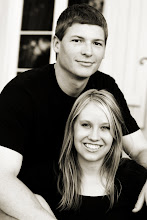If you know me, you know I read a lot. Here is my reading list this summer:
Radicals, Rhetoric, and the War--Brad Lucas
The Road--Cormac McCarthy
The Chicago Guide to Your Academic Career
Bird by Bird--Anne Lamott
The MLA Guide to Academic Writing
Modern Dogma and the Rhetoric of Assent--Wayne Boothe
Rhetorical Power--Steven Mailloux
Literary Theory: A Very Short Introduction
Orientalism--Edward Said
The Revolution: A Manifesto--Ron Paul
The Essential Foucault 1954-1984
In addition to books, I read a lot of periodicals and websites. I subscribe to the following: Newsweek (with which, I might add, I am very unimpressed), Home Theater, Sound and Vision, ESPN the Magazine, The Ensign. I don't read these in their entirety. I also read at least one article a day from my favorite websites: ESPN.com, nytimes.com, latimes.com, washingtonpost.com, star-telegram.com (local FT Worth paper), dallasnews.com, digg.com, time.com, hnn.us (the History News Network, I highly recommend it). Plus all of your wonderful blogs.
Why do I list this? For fun. But also, I want you to know that I read a lot, so that you when I say that I read something singularly brilliant, you believe that I have things to which I might compare it.
You might have noticed a book in the list: Orientalism, by Edward Said. I am giving this book my fullest endorsement. I have not read a work this insightful and intelligent in some time. What is this book about? That is a tricky question. This book is not a history of the middle east. This book is a history of western discourse about the middle east. There really is a huge difference. This guy is looking at the way that Europeans and Americans have studied the middle east.
Until you read this book, you cannot understand Occidental foreign policy. You cannot understand relations between the middle east and Western culture, to put it another way. But, beyond the specifics of middle eastern/western relations, this book will show how entire fields of knowledge are established and entrenched and how difficult it is to break out of these discourses. Said is using a lot of Foucault's theories, so if you want more, read the Foucault collection I listed above as well.
Read this book! You will not be sorry you did. It is tough reading, but you will have much to think and talk about afterward. It is still in print. It has been translated into 25 languages. It's that good. Read it! . . . Now!
Wednesday, July 23, 2008
Subscribe to:
Comments (Atom)

